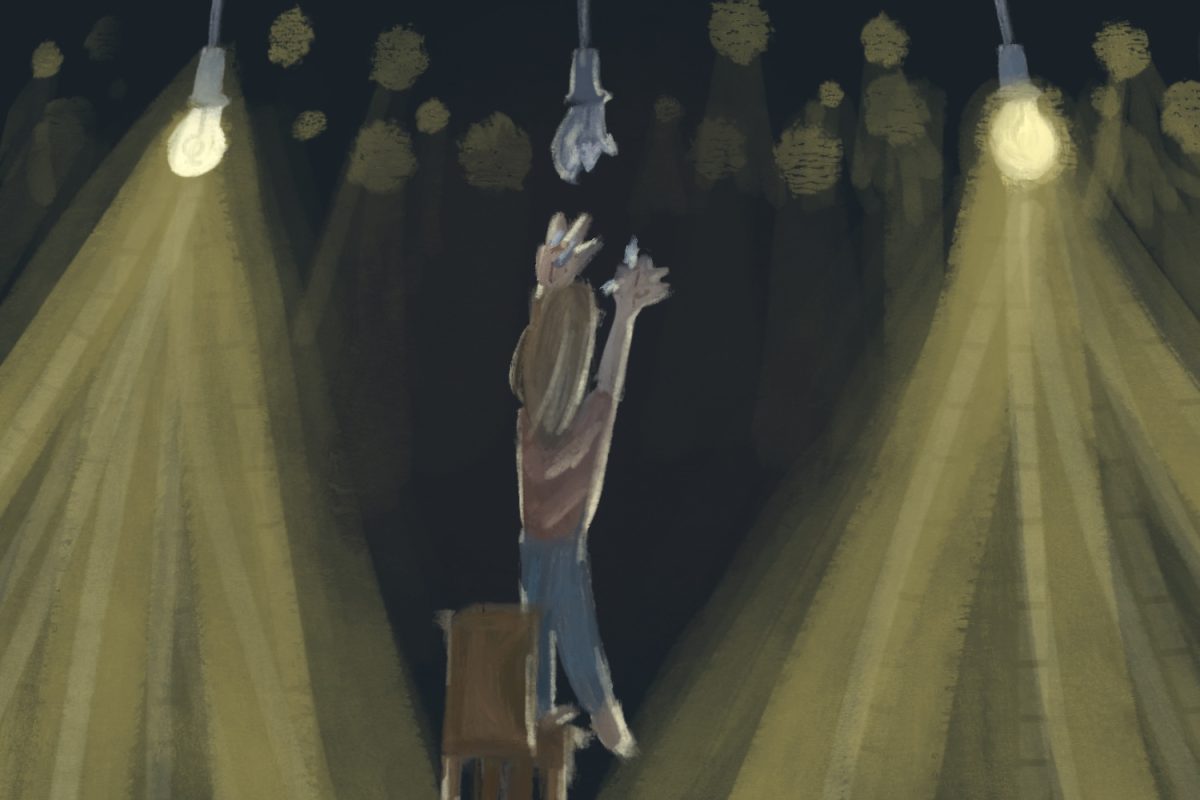Something is missing.
Class begins, and the teacher asks a boy where his homework is. His mind cycles through a million words, yet it’s completely blank. He feels the eyes of his classmates burning holes through his back. He swallows, trying to clear his cracked throat.
He manages a whisper. “At home.”
His classmates resume their work, wondering why such a simple response could warrant such an anxious reaction.
But home for the boy is different than most of his classmates.
Between social perception, academic performance, mental and physical health, and extracurricular sports and hobbies, a person’s teenage years are crucial for their development. However, many teenagers must juggle another factor — watching their home life collapse.
According to the United States Census, about 38.4% of teenagers aged 15-19 do not live in married-couple-family households.
Teenagers faced with the obstacle of parental divorce are often overwhelmed by the abundance of stress variables in their lives, which can cause a fracture in their parental relationships.
“High school age and teenage years are typically thought of as the time where — in psychology, we call it individuation — you start to develop your independent thoughts and identity separate from your family,” said Melissa Beacham Kelley, a marriage and family therapist.
Various examples of separate thoughts and identities include political opinions, religious beliefs, and sets of ethics and values. While critical questions about their individual identities circulate in a teenager’s head, differences between their parents’ identities and their own can stimulate pressure in the parent-child relationship.
Parental divorce can add an even heavier and more stressful push to the relationship and sometimes causes a fracture.
According to a study by Matthijs Kalmjin, “Long-Term Effects of Divorce on Parent-Child Relationships: Within-Family Comparisons of Fathers and Mothers,” divorced people have lower well-being and poorer psychological functioning than those who are married.
According to Kalmjin, the psychological well-being of parental figures in a child’s life will typically influence the child’s character and mental health. The state of a divorced parent’s mentality frequently results in neglect and a lack of attention to their children.
This lack of attention can lead to a distanced parent-child relationship. While separation severely impacts parents, teenagers of divorce are also among the most affected, facing issues many of their peers don’t have to experience.
“Instead of focusing on how excited they are to get their first job or go on their first date, a lot of emotional energy is being channeled into processing the fact that their parents are getting divorced,” Kelley said.
According to Kelley, teenagers and young adults suffer from another issue.
“It really impacts teenagers when they’re figuring out what kinds of relationships they want to have as they start dating or thinking about their adult future,” Kelley said. “ You can’t help but reference your childhood experiences. Let’s say you live with a single mom, and your dad cheated– that’s why the divorce happened. Mom is very vocal about ‘what a jerk Dad is’ and how ‘she should have never trusted him.’ This is a diatribe you’re hearing growing up, and it’s going to have an impact on you when it’s time for you to start dating.”
Kelley’s thoughts about teenagers having trouble foreseeing successful romantic relationships are supported by research in “The Effects of Divorce on Children: A Review of the Literature” by James A. Hopper. According to Hopper, adult children of divorce who experienced divorce when they were younger than 16 have more difficulty with intimate relationships and a greater inclination towards divorce.
Scarlett Buchanan, a sophomore at Carlmont High School, deals with these problems firsthand.
“My parents’ divorce definitely affected how I viewed relationships,” Buchanan said. “For a while, I was very pessimistic, thinking that all relationships would eventually end that way.”
Adding on to the surplus of troubles that arrive with parental divorce, many teenage children of divorce experience an academic decline.
According to Hopper, 86% of children of divorce experienced a fall in academic achievement. Long and Forehand (1987) reveal children from single-parent homes demonstrate higher rates of absenteeism and truancy, have lower achievement scores, and have higher drop-out rates than those from two-parent families.
“I think I was too young for my academics to matter,” Buchanan said. “But if it were to happen now, it would definitely affect my grades and mental health.”
These challenges are unique to teenagers and young adults. However, younger children undergoing parental divorce have their own set of distinctive experiences, according to Kelley.
“Developmental stages play a huge role in how kids understand what’s going on or don’t understand what’s going on and how much it impacts them,” Kelley said. “It’s hard for younger children to comprehend the enormity of what’s happening.”
Kelley said younger children are likelier to have unattainable desires or fantasies.
“They have a naivete and an innocence and still believe in magical thinking. They hope against hope that somehow magic can happen and their family comes back together again,” Kelley said.
Though teenagers and young children of divorce experience numerous different obstacles from each other, they share a common trait — short and long-term mental impacts.
According to Hopper, children of divorced parents experience “pain, anger, sadness, depression, anguish, sorrow, fear, crying, grief, and deterioration in their overall functioning” more frequently compared to children with married parents. Children of divorce also have noticeable differences in behavior, such as having a fear of abandonment and fears of impending disaster. They are also suspicious, hyper-alert, and emotionally constricted. These traits and an awareness of being “different” from their peers may make it difficult for children of divorced parents to fit in with classmates.
Although children and teenagers of divorced parents may struggle to find belonging in their peers who have different experiences than them, their circumstances can pave the way for a unique connection with others who have similar backgrounds.
“For a lot of people, whether it’s parents or children, finding a supportive group of people going through a similar experience can be very healing,” Kelley said. “As you’re going through that kind of experience, remember that other people who have very similar thoughts and feelings are there for you and want to support you.”
Efforts to live a “normal” life can feel fruitless when faced with the struggles of identity, parental connections, romantic relationships, academic performance, and behavioral challenges. However, these troubles lighten as time passes.
“As kids get older, it affects them more and more. I think parents need to keep that in mind when deciding about divorce,” Buchanan said.












